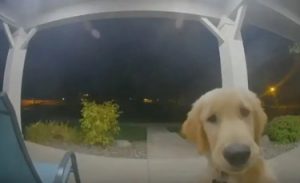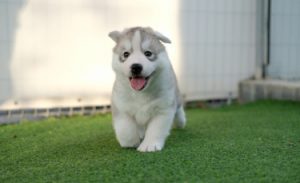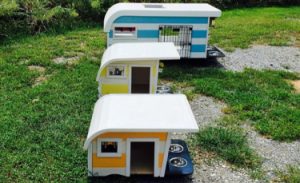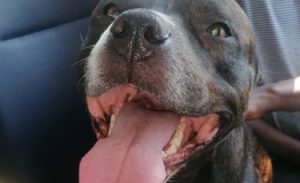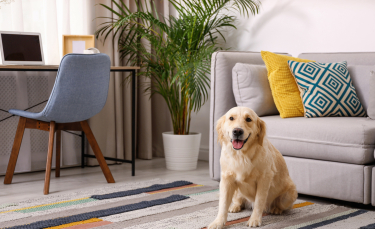 and
and
animals live with us and share our life and home. Their role is basically sentimental. First of all, they are the children’s first friend and confidant. They can even replace the children of a family. Therefore, paragraph 1 of article l.214-2 of the rural and Marine Fisheries Law stipulates the close relationship between people and animals. Can
and
abstract
prohibit animals from entering residential areas? Do we have any restrictions on the choice of animals? Paragraph 1 of the
stipulates: “everyone has the right to raise animals under the conditions specified in article l.214-3, subject to the rights of third parties, the requirements of public safety and health and the provisions of Law No. 76-629 of July 10, 1976 on the protection of nature.”
This close link is protected by Article 10 (1) (I) of Law No. 70-598 of 9 July 1970, which amends and supplements the law of 1 September 1948 on the amendment and codification of legislation on the relationship between lessor and lessee or persons living in residential or commercial places, providing that: “I- except for the seasonal tourism furniture rental agreement, any provision prohibiting the keeping of pets in the house shall be deemed unwritten as long as it involves pets. However, the condition of such detention is that the animal will not cause any damage to the building or any obstacle to the enjoyment of the occupants of the building. It is lawful to prohibit the detention of category I dogs referred to in articles l.211-12 of the rural and marine fisheries law.
at that time, this article was quite revolutionary. In fact, even in 1970, animals were regarded as one thing, and legislators stressed the fact that raising animals could not depend on the wishes of lessors, which showed the importance of a strong link between animals and breeders. This is a right of animal presence, as Professor Jean Pierre marg é Naud pointed out as early as 1987.
however, the question is: is it possible to prohibit animals from appearing in residential areas? Do we have restrictions on the choice of animals? Is it possible for
to prohibit animals from entering residential areas?
should clarify that the legislator did not give a definition of housing. However, one thing is certain. Since the promulgation of the law on simplification of laws and administrative procedures on March 22, 2012, the owners of tourist places with furniture can prohibit the existence of animals. However, this exclusion must be stipulated in the contract.
and
. In addition, the Paris court of appeal clarified what the residential space of the apartment building meant. Excluding public areas and dressing rooms: “the presence of cats in the dressing room shall be regarded as a violation of the rules of joint ownership, just like cats walking in public areas” (Paris, pole 4, ch.9, March 22, 2012).
Therefore, there is no right of animal presence in the public parts of furnished tourist places, dressing rooms and apartment buildings. Therefore, this right varies depending on the legal nature of the residence. Of course, this is not the case for the self-employed. Does
limit our choice of animals?
needs a positive answer about the choice of animals, because the text is only for pets, which actually eliminates wild animals. Therefore, you must choose among pets.
is registered nI register that your email address is collected by woopets, allowing you to receive our news and business offers. However, the use of the word “pet” is problematic because it is not a commonly used term, such as pets and pets. “Pet” has no special meaning; It can be seen from the text of the 1970s that during this period, ordinary language was easier to use this phrase than livestock.
and
can be noted that there was no change when the exception of furnished tourist places was included in 2012. Always about “pets” Although this is not the goal of Law No. 2012-387 of 22 March 2012 on the simplification of laws and administrative procedures, the clarification of the terms used is welcome. However, the retention of the term “pet” seems to increase the freedom to choose animals, because animals can be domesticated or kept in captivity, of course, in order to comply with the existing provisions on different administrative licenses. Therefore, it is necessary to re-examine the definition of animals to determine who has the right to live with us.
and
some definitions emphasize the fact that animals live at home, while others emphasize the close relationship between people and animals. On March 14, 1861, the Supreme Court of appeal made the first definition of livestock: “living animals that live, feed, feed and reproduce under the eaves of people”. The Supreme Court of appeal reconsidered this definition in a judgment of February 16, 1895, holding that domestic animals are animals living “under human supervision”. It can be seen from the
and
that the concept of residence in the first definition no longer exists in the second definition. The text of the law was subsequently adopted. The European Convention for the protection of pets (ETS 125 of November 13, 1987) defines pets as follows: “pets refer to any animals raised or intended to be raised by humans in their homes for human entertainment and as partners”. In domestic law, article l.214-6 (I) of the rural and Marine Fisheries Law stipulates that “animal means any animal raised or intended to be raised for human approval”. Therefore, both texts emphasize the close relationship between animals and humans, and the Convention does not forget the concept of family. This confirms the view that we should not only consider the definition of pets.
in fact, there are differences between pets in the pet group, Pets and domesticated or captive animals: therefore, pets are not the only animals to be considered, because all pets can live in our homes under the cover of complying with the current laws and regulations. However, there is one exception to the owners of a class of dogs. According to Article 3 of Law No. 99-5 of 6 January 1999 on dangerous and stray animals and animal protection, the lessor can prohibit the existence of category I dogs, namely attack dogs. Therefore, their existence itself is illegal.
is
in short. Even with exceptions, our family’s consideration of animals is true. Finally, it doesn’t matter whether you use the right words to describe the animals you loveJean Pierre marg é Naud), the only important thing is that we do not always know that animals are raised with respect for their sensitive quality of life. “


